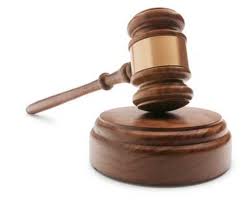The law & fraud
Fraud is a crime that involves a person intentionally deceiving another to either gain something such as money, valuables, or success. In recent years, fraud has become more accessible to criminals due to the popularity of the internet. For example, a fraudulent individual could con a person out of their money, or their valuables, by setting up an illegitimate website, or by using an existing website to deceive that person into sending items or money on terms in which the fraudulent person may disregard.
Fraud may cause not only the loss or harm to a victim, but it may also potentially have damaging psychological effects, such as distrust of legitimate services and people.
It is against the law to commit fraud and those found guilty could receive punishment ranging from a fine to a custodial sentence. There are several different types of fraud that can be committed; some of these are benefit fraud (claiming benefits when a person is ineligible), counterfeiting (producing or utilising false items, such as money/cheques), false insurance claims (falsely claiming money or services from an insurance company), identity theft (claiming someone else’s identity as your own), tax fraud (evading to pay tax) and false advertising (using false information to advertise a product/service).
“The Fraud Act 2006” was put in place in the United Kingdom to help prevent and put a stop to fraud being committed. According to http://www.legislation.gov.uk; “A person is guilty of fraud if he/she is in breach of any of the sections listed below;
The sections are—
(a) Fraud by false representation.
(b) Fraud by failing to disclose information.
(c) Fraud by abuse of position.
If a person is taken to court due to a fraudulent offence, the court will consider how culpable the defendant is, and from that, a Judge will decide on a penalty. The defendant in question will have the right to be defended by criminal defence solicitors. Some of the options a Judge will take into account are;
- How much planning has gone into the offence
- How long the fraud was carried out for
- The motivation behind the offence
- The value of the money or possessions involved
- How many people were involved in the offence
- If there were any physical risks of injury
- How much of an impact there was on the victims involved
Depending on the seriousness of the crime, a person could be given a fine, a community order or a prison sentence, with a maximum of 10 years. They may also have certain privileges taken away from them if those privileges played a specific role in the offence.


Leave a Reply